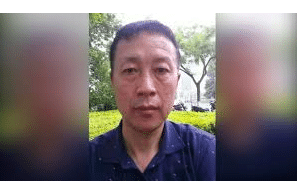Tang Jitian (???) is a Chinese human rights lawyer who has taken on human rights cases across a range of areas, including land rights, freedom of religion, freedom of expression and freedom of association. As a result of his persistent activism, his license to practise law was revoked in 2010. The human rights defender continued his human rights work since his disbarment and has been subjected to beatings, torture, surveillance, travel restrictions, and arbitrary detentions on multiple occasions. In November 2017, he tried to enter Hong Kong from Shenzhen to seek medical treatment, but the mainland border control authorities told him he was not allowed to leave because he “may endanger national security”.
Tang Jitian’s 25-year-old daughter, who has been studying in Japan, fell ill in April 2021 with tuberculosis and has since been hospitalised in an intensive care unit. She is said to be in serious condition due to multiple complications triggered by tuberculosis.
After his daughter was hospitalised, Tang Jitian obtained a visa to travel to Japan and contacted public security officers in Beijing to seek the lifting of his exit ban. However, the officers he contacted said they were discussing the matter with their superiors and failed to give him a definitive answer despite repeated follow-up. On 1 June 2021, the human rights defender flew from Beijing to Fuzhou. On the morning of 2 June 2021, he checked in his luggage and obtained his boarding pass at the Fuzhou airport for his flight to Japan, but was stopped and turned back at the border control area.
The border control officers told the human rights defender that he was prohibited from leaving the country on the basis of article 12(5) of the Exit and Entry Administration Law, which grants the authorities the power to impose exit bans on Chinese citizens if they “endanger national security”. The officers did not provide any legal documents or any detailed explanation as to why and how his departure would endanger national security. They also initially refused to disclose the officials who ordered the exit ban. After Tang Jitian insisted on knowing who issued the order, the officers said it was the Beijing Public Security Bureau, but refused to disclose the names of the officials who made the decision.
Chinese authorities have a history of imposing arbitrary restrictions on freedom of movement, including both domestic and international travel bans, as well as forced temporary relocation during politically sensitive periods, in order to target human rights defenders. These restrictions based on such ill-defined concepts as “endangering national security” are inconsistent with the Chinese Constitution, which prohibits unlawful deprivation or restriction of citizens’ freedom of the person, and are also incompatible with international human rights standards protecting the right to freedom of movement.
Front Line Defenders condemns the arbitrary exit ban imposed on Tang Jitian and believes it is a reprisal for his work in defence of human rights. Preventing a father from seeing his daughter who is seriously ill is particularly cruel and inhumane.
- Immediately and unconditionally lift the exit ban on Tang Jitian, and cease and refrain from all other forms of restrictions of his freedom of movement, including his right to exit and return to China;
- Guarantee in all circumstances that all human rights defenders in China are able to carry out their human rights activities without fear of reprisals and free of all restrictions, in line with China’s international human rights obligations and commitments;
- Initiate a comprehensive legal reform process, in genuine consultation with independent civil society and human rights defenders, to review existing laws, regulations, policies and practices, especially the provisions related to national security offences, that have been used to target human rights defenders, with a view to align them with China’s obligations under international human rights law and standards.




